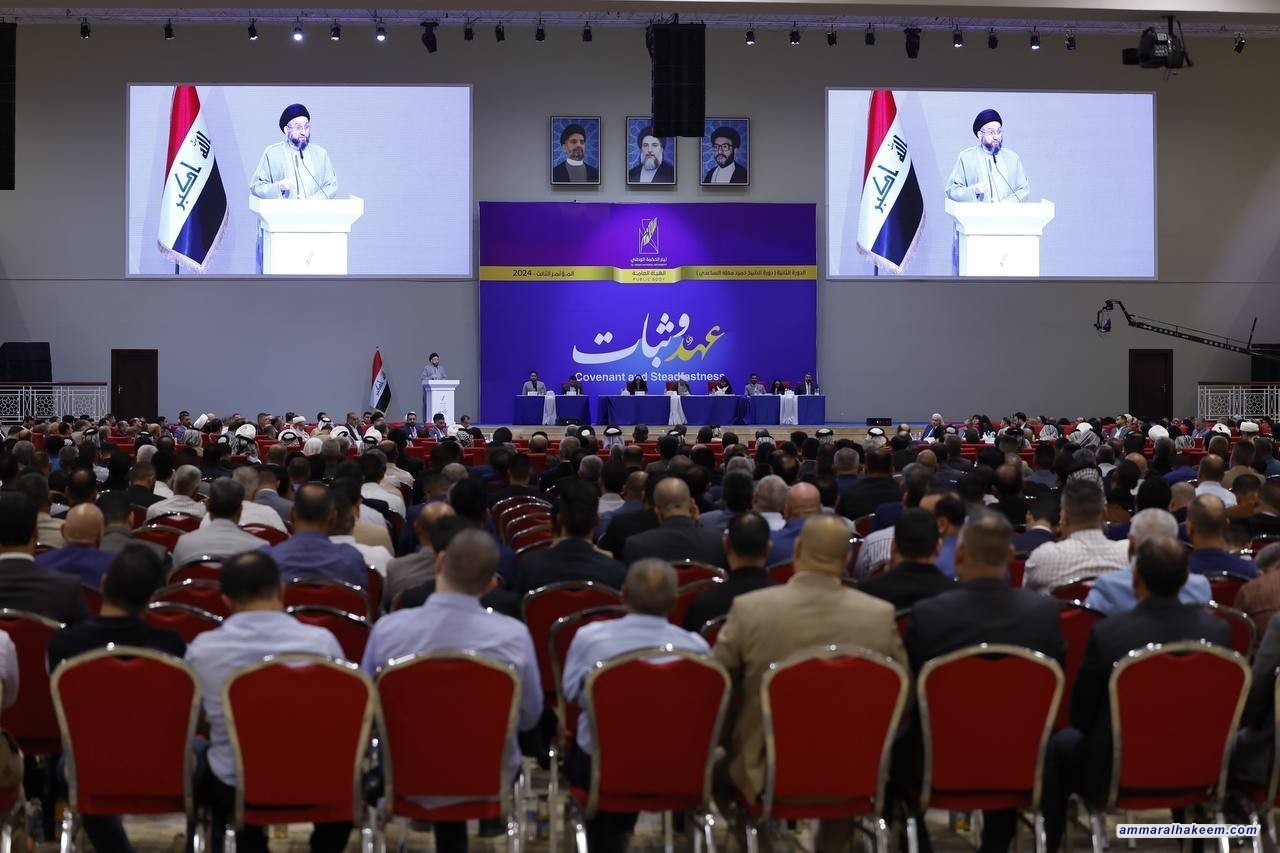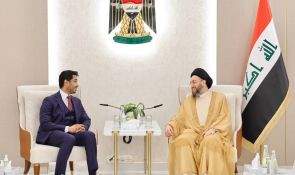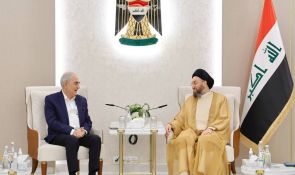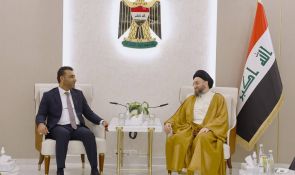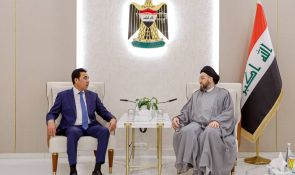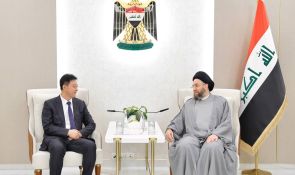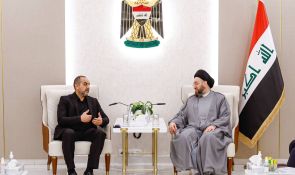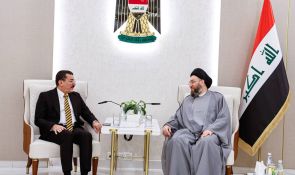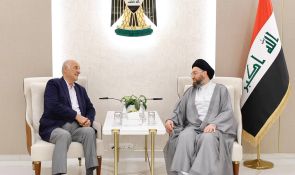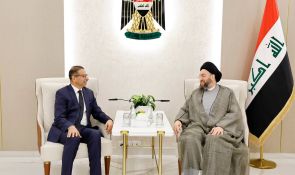Sayyid Al-Hakeem: Al-Hikma National Movement as the central point and pillar of moderation in Iraq
During the third conference of the second term of the General Assembly of the National Wisdom Movement, Sayyid Ammar Al-Hakeem, Head of Al-Hikma National Movement, extended his congratulations to attendees on Eid Al-Adha and Eid Al-Ghadeer. His Eminence also commemorated the legacy of the late scholar Sheikh Hameed Ma'la Al-Saadi (may Allah have mercy on him).
Sayyid Al-Hakeem noted that Eid Al-Adha symbolizes sacrifice for the prophetic mission, while Eid Al-Ghadeer represents the model of leadership in the prophetic mission, exemplified by Imam Ali (peace be upon him).
H.E. discussed the current political, social, and security stability in Iraq, along with public satisfaction with government performance and regional and international engagement with the country. The conference takes place amid critical regional and international circumstances, including the resilient resistance in besieged Gaza, potential Israeli conflict with Lebanon, the Russia-Ukraine war, and the implications of the U.S. elections.
H.E. detailed the challenges faced by Al-Hikma National Movement, highlighting its ability to withstand and overcome shocks while adhering to its principles and avoiding reactionary responses to internal and external pressures. This steadfastness has established the Movement as the central point and pillar of moderation in Iraq.
H.E. pointed out that the local elections partially restored the Movement's standing in terms of seats and votes, describing the Movement's votes as clean. H.E. noted the social acceptance of the Movement and its demonstrated support for government efforts in reconstruction and development.
H.E. emphasized the national, regional, and international acceptance of the Movement, attributing this to its characteristics of moderation, centrism, credibility, and reliability. This reputation has enabled the Movement to address numerous issues internally and externally without seeking media praise, focusing instead on achieving objectives.
H.E. credited the achievements of Al-Hikma National Movement to divine grace and the sacrifices of martyrs, stressing the importance of relying on Allah and maintaining humility in success and submission to Allah in failure. H.E. reiterated the importance of adhering to the vision of the supreme religious authority, describing the late Aziz Al-Iraq (may his soul rest in peace) as a religious obligation.
H.E. highlighted the importance of anticipating events, learning from experiences, and maintaining positions regardless of others' opinions, noting that the Movement's positions often become accepted and adopted by others over time.
H.E. called for patience and persistence, stating that political work requires time to solidify positions. H.E. urged adherence to the school of waiting for relief and not being discouraged by events that do not yield immediate results. H.E. reminded attendees of the development programs presented for the provinces in 2013 and their role in achieving development and reconstruction.
H.E. stressed the importance of maintaining political beliefs and identity, stating that these aspects ensure authenticity. H.E. called for pride in the Movement's political ideology, identity, history, symbols, and martyrs. H.E. emphasized avoiding side conflicts, focusing on productive work, and following the example of the Prophet Muhammad (peace be upon him and his pure family).
H.E. reaffirmed the Movement's approach of moderation, centrism, and clarity, and the importance of distinguishing between speed and haste in expressing political positions. H.E. highlighted the significance of balance and stability in the country, stating that moderation is a strength and key to success.
H.E. also emphasized the importance of institutional work and its role in achieving positive project accumulation. Institutionalism helps expand and include new energies, prevents the personalization and monopolization of work, and contributes to human development and capacity building, which is challenging but enduring.
Regarding priorities, H.E. stressed spiritual, moral, and political development, organizational attention, and adherence to the law. H.E. called for producing new leaders, fostering creativity, avoiding dependency and complaints, and targeting others. H.E. highlighted the importance of knowledge, scientific progression, adopting rare and modern specializations, fieldwork, continuous communication, adherence to approved directives and plans, unity, and working to serve people with all available resources.
H.E. emphasized supporting the successes of the federal and local governments to achieve progress, reconstruction, and development. H.E. also called for attention to intellectual, social, and moral aspects, addressing challenges in these areas, and preparing for future responsibilities.

